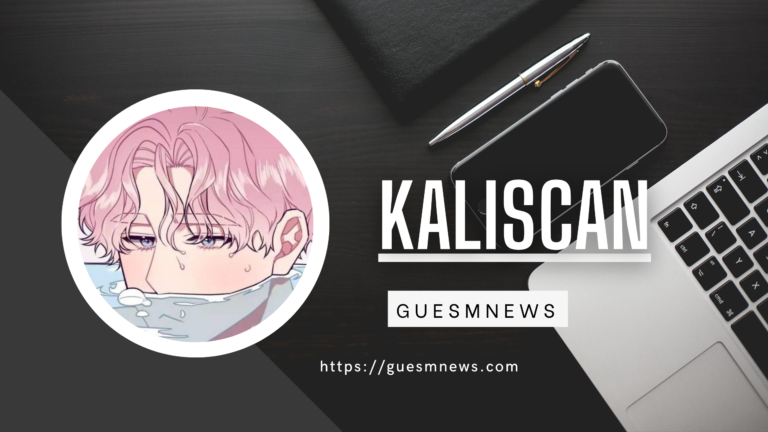
Photo by <a href="https://unsplash.com/@denleyphotography" rel="nofollow">Denley Photography</a> on <a href="https://unsplash.com/?utm_source=hostinger&utm_medium=referral" rel="nofollow">Unsplash</a>
Introduction to Holo and Her Character
In the world of “Spice and Wolf,” Holo stands as a captivating character, embodying the complexities associated with both divine and earthly attributes. As a harvest goddess, Holo possesses a dual nature that interlinks her mythological background with her experiences in human society. With her wolf traits, including enhanced senses and a playful demeanor, Holo transcends the ordinary and appeals to both the magical and humanistic elements within the narrative.
Holo’s character is intricately woven into the storyline, where she acts as both mentor and companion to the protagonist, Kraft Lawrence. Although Holo possesses wisdom far beyond that of a typical human, her insistence on projecting an image of illiteracy raises intriguing questions about her motivations and self-perception. She often presents herself as uneducated, avoiding formal practices associated with literacy. This deliberate pretense serves multiple narrative functions, enhancing her cunning nature while also allowing for deeper character development.
Her intelligence is palpable through her dialogue, strategic thinking, and keen observations of human behavior. These traits starkly contrast with her façade of ignorance, creating a multifaceted character that invites viewers to ponder her true nature. Holo’s clever manipulation and quick wit demonstrate that her lack of written literacy does not equate to a lack of understanding or insight. Instead, her actions add layers to her personality, contributing significantly to the overall complexity of the tale.
The interplay between her divine origins and her pragmatic approach to the human world leads to a broader exploration of themes such as identity, communication, and the pursuit of knowledge. As the story unfolds, the reasons behind her pretense become essential to understanding both her character and the powerful dynamics at play in “Spice and Wolf.”
The Cultural Context of Literacy in the Series
In the world of “Spice and Wolf,” literacy plays a pivotal role, intricately woven into the fabric of society and commerce. Within this context, being literate is often associated with power, status, and the ability to navigate the complexities of trade. The series is set in a medieval-inspired environment where the flow of information directly impacts economic ventures. Literacy, therefore, becomes a tool for merchants and traders, enabling them to draft contracts, maintain records, and engage in negotiations. The importance of written communication in validating transactions cannot be overstated, as it fosters trust and credibility in a society that heavily relies on barter and trade.
However, the perception of literacy extends beyond its practicality in commerce. In “Spice and Wolf,” characters who possess literacy often enjoy a higher social standing, while the illiterate may struggle to assert their influence. This dynamic is especially pronounced in agrarian communities, where knowledge of agricultural practices and market trends can significantly affect one’s livelihood. Holo, the wise wolf, represents a unique case where her outward display of illiteracy serves both as a protective façade and a means to challenge social norms. Her position allows her to exert influence while appearing unassuming, reflecting how literacy—or the lack thereof—shapes personal identity.
The societal divide surrounding literacy also emphasizes class distinctions. Wealthier individuals, who can afford education, represent a stark contrast to their less fortunate counterparts. These nuances create a layered understanding of characters and their interactions in the series. Through Holo’s character, the narrative explores how illiteracy can be wielded as a strategic advantage, underscoring how literacy is not just a measure of knowledge, but also a lens through which social dynamics unfold. As we delve deeper into Holo’s motivations and actions, it becomes apparent that her engagement with literacy reflects broader cultural themes present in “Spice and Wolf.”
Holo’s Intent Behind Her Illiteracy Act
In the world of *Spice and Wolf*, Holo’s pretense of illiteracy serves multiple purposes that are crucial to her character development and interactions, particularly with Kraft Lawrence. While on the surface, Holo’s act of pretending to be uneducated may appear to be a mere playful deception, a deeper analysis reveals her motives are layered and intricate. One of the primary reasons for Holo’s façade is her desire to maintain autonomy. As a wolf deity, Holo possesses immense power and intelligence; however, portraying herself as illiterate allows her to navigate the human world without exposing her true nature. This dual identity serves to protect her from potential threats, ensuring that she remains an enigmatic figure in Lawrence’s life and throughout their journey.
Additionally, Holo’s act of illiteracy can be perceived as a mechanism for fostering a more genuine relationship with Lawrence. By intentionally lowering his expectations of her, she creates an environment where emotional intimacy can flourish without the pressures that come from her actual status as a wise and ancient being. Holo’s illiteracy, therefore, allows for a nuanced exploration of vulnerability, which ultimately strengthens the bond between her and Lawrence. This relationship dynamic highlights the importance of companionship and trust as central themes in the narrative.
Moreover, Holo’s behavior can symbolize her reluctance to embrace human constraints and societal norms. In portraying herself as uneducated, she challenges the traditional notions of intelligence and wisdom, as her true wisdom is often demonstrated through insight rather than academic knowledge. This reflects her struggle between her wolf identity and her want to live among humans. In essence, Holo’s act of illiteracy is not simply a trivial ruse; it is a strategic choice that enriches her character and propels her relationship with Lawrence, reinforcing the central themes of independence and authenticity in *Spice and Wolf*.
The Dynamic Between Holo and Lawrence
In the realm of ‘Spice and Wolf,’ the intricate relationship between Holo, the wise wolf of harvest, and Lawrence, the traveling merchant, serves as a fascinating narrative pivot. Their dynamic evolves throughout their journey, blending elements of companionship, trust, and emotional growth, all influenced by Holo’s feigned illiteracy. This deliberate act of misrepresentation becomes a pivotal factor that both complicates and enriches their partnership, showcasing the dual nature of their interactions.
Holo’s pretense of being uneducated allows her to maintain a sense of independence and control within the partnership. By presenting herself as less knowledgeable, she often empowers Lawrence, granting him opportunities to take the lead. This dynamic fosters a sense of responsibility for Lawrence, who seeks to protect and guide Holo, enhancing his sense of purpose. However, this act also creates an underlying tension, as Holo’s true intellect and depth of knowledge occasionally surface, leading to moments of frustration and confusion for Lawrence. He grapples with the disparity between Holo’s claimed ignorance and her insightful observations, which can cause miscommunication and strain their rapport.
Moreover, the act of Holo pretending to be illiterate catalyzes a deeper emotional connection between the two characters. As they navigate challenges together, Lawrence’s growing awareness of Holo’s true nature leads to a bond built on trust and shared experiences. Their partnership transitions from mere companionship to a profound relationship layered with vulnerability. Holo’s act fosters an environment where Lawrence learns to value not just the words exchanged, but the unspoken emotions and intentions that arise from their travels. Ultimately, the complexities of their dynamic illustrate that Holo’s illiteracy is more than a simple ruse; it is a narrative tool that accentuates their emotional journey and propels their character development within the story. Additionally, the evolution of their trust and reliance on each other highlights the importance of communication in forging strong relationships.”
The Role of Deception in the Narrative
The theme of deception weaves itself intricately throughout the narrative of “Spice and Wolf,” serving as a critical mechanism that drives both character development and plot progression. Holo, the clever wolf deity, deliberately adopts the guise of illiteracy, which is not merely a whimsical act but rather a calculated strategy that reflects the multifaceted nature of deception within the series. This pretense allows her to navigate the complexities of the human world while simultaneously manipulating perceptions to her advantage.
Deception in “Spice and Wolf” extends beyond Holo, influencing various characters who engage in trade trickery and cunning negotiations. For instance, Kraft Lawrence, the protagonist, often finds himself embroiled in scenarios where honesty is a liability. His reliance on trade tactics requires him to employ deceit as a means of survival and success. The world of commerce depicted in the series is rife with situations where information asymmetry becomes a tool, often leading to morally ambiguous decisions.
The moral landscape of “Spice and Wolf” is further complicated by the presence of other characters who utilize deception for their own ends. For example, characters like the peddler and rival merchants demonstrate that lies and half-truths are commonplace in the competitive trade environment. Through these instances, the narrative calls into question the very nature of truth and trust. The constant dance between honesty and deceit fosters an atmosphere where characters must evaluate their motives and the consequences of their choices.
Holo’s illiteracy act exemplifies how deception is not merely a plot device but a reflection of the society in which the characters operate. As the storyline unfolds, it becomes evident that deception plays a pivotal role in shaping relationships, driving conflicts, and revealing deeper themes related to survival, power, and trust. The richness of this theme enhances the complexity of the characters and ultimately enriches the viewer’s experience.
Symbolism of Illiteracy and Knowledge
In “Spice and Wolf,” Holo’s apparent illiteracy serves as a profound symbol that intertwines the themes of knowledge and power. This character choice not only illustrates her resistance to societal norms but also challenges the conventional definition of intelligence. Written communication, while traditionally seen as a measure of knowledge, is contrasted with Holo’s innate wisdom and insight. This juxtaposition highlights the notion that true intelligence transcends the ability to read and write, suggesting that wisdom can manifest in various forms.
One interpretation of Holo’s disinterest in literacy is as a defiance of societal constraints that seek to dictate the paths to knowledge and success. In many cultures, the ability to read and write historically has been linked to power and status. Holo, by disregarding these academic conventions, protests against the limitations these impositions carry. Her character exemplifies that there are multiple avenues to understanding the world, including experiential knowledge, intuition, and emotional intelligence. Thus, she channels her wisdom in a manner that is raw and direct, illustrating a vibrant alternative to learned behavior.
Moreover, Holo’s journey throughout the series reveals layers of her character that suggest a deep, inherent understanding of life, commerce, and relationships that surpasses traditional scholarly knowledge. This challenges the viewer to reconsider their perceptions of intelligence. Holo teaches that knowledge is rich and multifaceted; it encompasses not only the written word but also the experiences and emotional insights garnered from living a full life. Therefore, Holo’s illiteracy becomes a profound statement, advocating for a broader understanding of wisdom that does not exclusively hinge on formal education.
Audience Interpretation of Holo’s Behavior
Holo’s character in “Spice and Wolf” exhibits a complex duality that has sparked considerable discussion among audiences and fans. Her apparent pretense of illiteracy serves various narrative purposes that resonate with the viewers. One prominent interpretation stems from Holo’s desire to maintain her independence and control over her own fate. By portraying herself as uneducated, she can navigate the world with a certain level of anonymity, thereby shaping her interactions to suit her goals. This behavior opens up discussions about power dynamics in relationships, particularly between her and Lawrence, which adds depth to their developing bond.
Moreover, fans on various forums have expressed that Holo’s act of feigned ignorance serves as a critique of societal expectations and norms regarding knowledge and intelligence. In a world that often values practical skills and education, Holo’s choice to present herself differently sparks discussions about the nature of wisdom versus knowledge. Viewers have engaged in debates regarding the concept of “knowing” versus “learning,” illustrating that her character challenges conventional ideas of what it means to be educated.
Another significant aspect that audiences highlight is the emotional layer behind Holo’s behavior. Her history and the weight of her divine heritage contribute to a sense of loneliness and alienation. By pretending to be uneducated, she seeks companionship and acceptance on her own terms, allowing her to interact with others without the burden of their preconceived notions about her identity as a wise wolf. This emotional perspective deepens the connection viewers feel towards her, enabling them to interpret her actions through a lens of empathy.
In essence, the multi-faceted nature of Holo’s character invites diverse interpretations. The reflections and discussions among fans reveal a collective exploration of themes such as identity, autonomy, and societal expectations, making Holo a compelling subject in the analysis of “Spice and Wolf.”
Comparative Analysis with Other Characters
Holo, the clever wolf deity from the anime and light novel series “Spice and Wolf,” presents a complex character marked by her pretense of illiteracy. This trait serves not only as a means of navigation through the human world but also highlights the broader themes of knowledge and deception. A comparative analysis with other literary and anime characters exhibiting similar traits reveals diverse mechanisms and consequences of their deceit.
One notable character for comparison is Yuki-onna from various Japanese folklore and adaptations. Often portrayed as a beautiful woman who snow falls from her presence, her stories reflect an idea of self-imposed ignorance or deception to navigate societal interactions. Yuki-onna’s motivations for presenting herself as untouchable often result in isolation, as her secrets keep others at a distance. Similarly, Holo masks her intelligence with a guise of simplicity, yet this brings her closer to the merchant Kraft Lawrence. The contrast lies in how Holo uses her facade to foster relationships, while Yuki-onna typically isolates herself.
Another character worth mentioning is Shiki Ryougi from “Tsukihime.” Shiki displays a deceptive understanding of her own abilities, often masking her perceptions with ignorance. While her false illiteracy arises from trauma and a protective measure against her overwhelming powers, Holo’s guise is rooted in her strategic approach to human interactions. Both characters face consequences for their deception; Shiki’s experiences lead to self-discovery, whereas Holo’s pretense often results in a deeper connection with Lawrence and a better understanding of humanity.
These characters, while navigating their respective worlds of deception, illuminate the multifaceted implications of false literacies. In Holo’s case, the consequences often manifest as a duality of connection and estrangement, contrasting with Yuki-onna’s isolation and Shiki’s self-exploration. Through these comparisons, we gain a richer understanding of Holo’s unique portrayal in “Spice and Wolf.” By evaluating these nuanced characterizations, we appreciate how false illiteracy serves as a powerful narrative device that shapes interactions and thematic depth across literature and anime.
Conclusion: The Layers of Holo’s Character
The character of Holo in “Spice and Wolf” serves as a compelling examination of complexity, particularly through her feigned illiteracy. Her act of pretending to be uneducated is not merely a plot device; it is a strategic maneuver that encapsulates her multifaceted nature. Holo is not merely a wise wolf or a deity of harvest, but also an embodiment of the struggle between appearance and reality. This duality invites readers to question preconceived notions of knowledge and identity.
Holo’s illiteracy becomes a fascinating vehicle for exploring deeper themes within the narrative. The juxtaposition of her intelligence against the mask of ignorance challenges the expectations of both characters and the audience. Through this intricate layer, Holo effectively reveals the limitations of societal assumptions about education and competence. Her deliberate choice to appear less knowledgeable than she is highlights the importance of context when interpreting one’s abilities and worth.
Moreover, Holo’s character raises essential questions about self-identity. Her pretense may stem from a desire to connect with Lawrence, whose own journey reflects the quest for understanding and acceptance. By adopting this facade, Holo not only protects herself but also navigates the complexities of their relationship. This interaction underscores that true knowledge extends beyond academic prowess, as it involves wisdom gained through experience and emotion.
As readers reflect on Holo’s deliberate illusion, they are encouraged to consider the broader themes at play: the significance of knowledge in shaping identity and the prevailing importance of looking beyond appearances. Holo ultimately serves as a reminder of the layers inherent in every individual, urging an exploration of the truths that lie beneath the surface.






